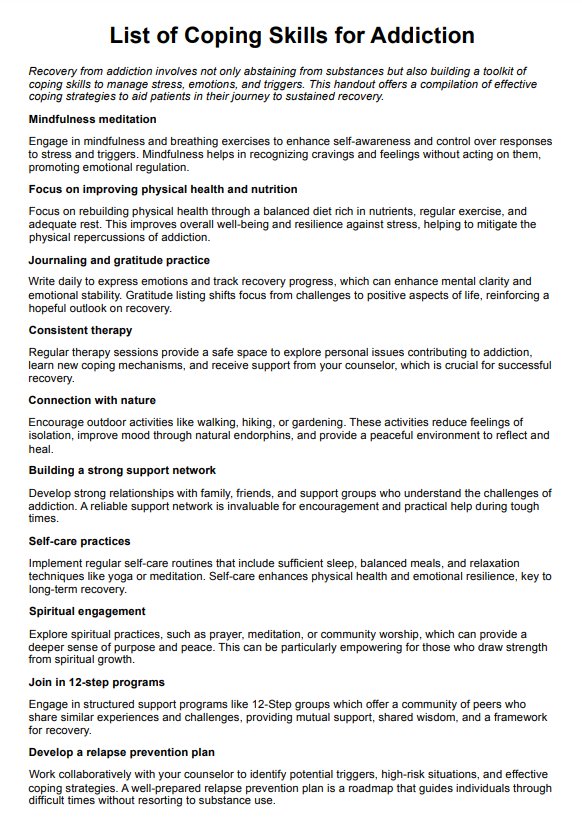Coping skills in addiction include mindfulness meditation, physical activity, maintaining a balanced diet, engaging in therapy, and building supportive relationships. These practices help individuals manage cravings, reduce stress, and improve overall mental and physical health.

List of Coping Skills for Addiction PDF
Download our List of Coping Skills for Addiction PDF to develop healthy coping skills and foster a positive attitude toward recovery.
List of Coping Skills for Addiction PDF Template
Commonly asked questions
The 5 C's of addiction are control, compulsion, craving, consequences, and consumption. They describe the progression of addiction, from the loss of control over drug use to compulsive behaviors and significant negative consequences.
A key skill used to avoid substance abuse is developing self-awareness, which involves recognizing triggers and implementing strategies to cope with them effectively. This skill helps individuals avoid situations where substance use is likely and fosters healthier decision-making.
EHR and practice management software
Get started for free
*No credit card required
Free
$0/usd
Unlimited clients
Telehealth
1GB of storage
Client portal text
Automated billing and online payments











